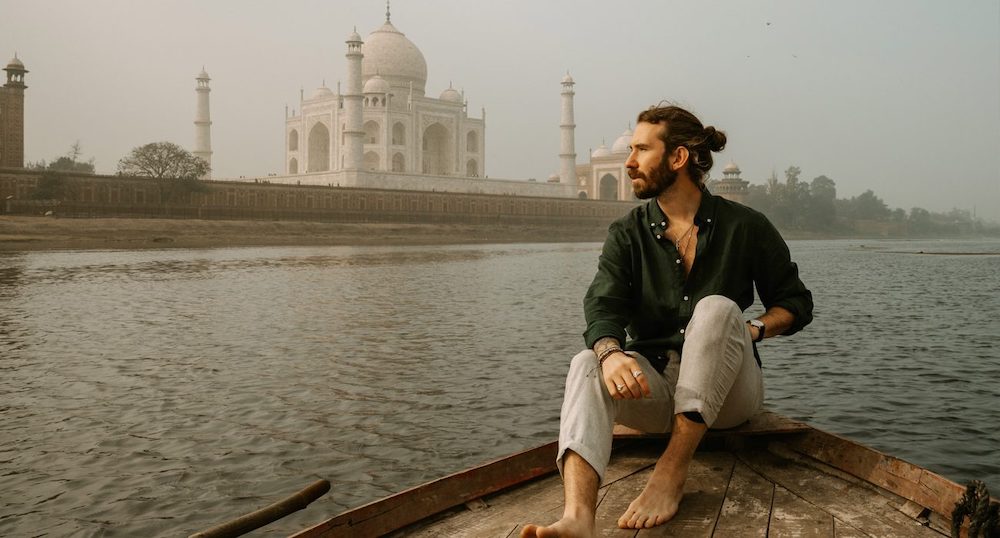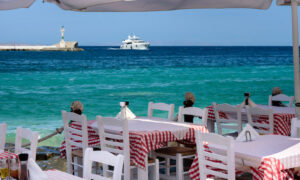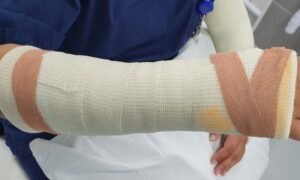(Editor’s note: Full disclosure – we’ve lived next door to the Dijkstra family since 2016 and Dispatches has collaborated with Stijn Dijkstra on several client projects as he’s turned a freelance business into a firm with top shelf clients.)
When you google Stijn Dijkstra, the results literally say “Internet Personality.”
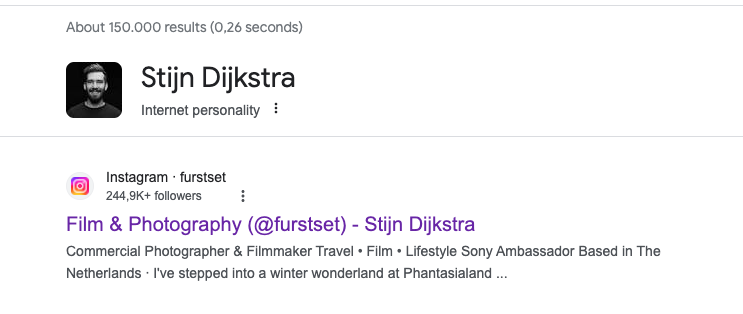
More precisely, Stijn is a particular type of Digital Nomad. Instead of days at the beach café writing code or shooting TikTok influencer videos, the Netherlands-based digital cinematographer/photographer spends most of the year traveling the globe for clients, working in India, Saudi Arabia, Philippines, China or wherever clients need him. This is a young talent who’s built his Furstset digital photography business into a global creative house through years of shooting, editing and, of course, traveling.
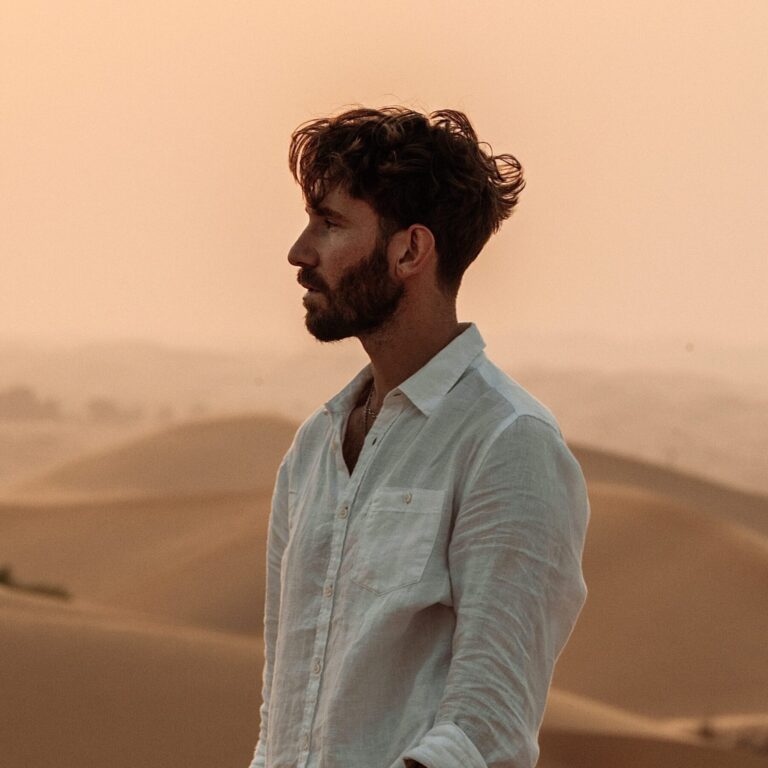
Clients include Sony, Google NL, Huawei and several government’s tourism departments, including Indonesia, Faroe Island and the Republic of Ireland.
With this client lineup, it’s no surprise he has more than 244,000 Instagram followers.
We asked Stijn to take a few minutes and talk about how he deals with the practical challenges of constant travel.
Dispatches Europe: How do you stay head of mundane tasks such as doing laundry while constantly changing hotels?
So, as you can imagine, the changing of hotels and constantly being on the move has its downsides. These days I require myself and my clients to stay at least two days, three nights at a particular place. Just so my body can adjust and get used to the environment and so I can set myself up in each different hotel.
Back in the day, I used to not care too much about staying for too long and this had me staying one night at places, which means you constantly live out your suitcase.
Can you share some practical tips?
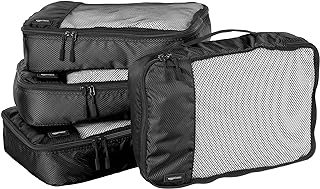
One of the things I always use are packing cubes. This way I can arrange all my stuff and this way I don’t need to unpack everything. So I arrive at my hotel and I only take out the things I really need: one set of clothes, my gear and whatever I need for that day. The rest will stay packed. Then, when I change clothes, I put my other clothes back in my suitcase and replace it with new clothes I want to wear. This way I keep my room clean and tidy.
I often do a few hand washes in between traveling, depending on how long I have in particular places and what the temperature is. If the environment doesn’t give me the chance to do a hand wash, I just drop off my clothes at a nearby washing station or laundry and that’s it. It often takes 24 hours for that to finish, so I just check beforehand where I can do this and just drop it off.
And changing hotels?
Regarding changing hotels, I always try to map out a general route before I go on my travels. I just know that I want to start north and I want to end somewhere south. In between those, it’s all a day-to-day choices and I’ll book whenever I feel like it.
This way, hopping hotels doesn’t feel against my nature and it feels nice to travel around. If I want to stay longer at a particular place, I try to extend my stay. If not, I will check hotels/hostels in the nearby area and walk there/take the taxi to change stays.
How do you make sure your laptops and photo equipment are in working order?
As explained above, I travel based on a day-to-day choice and I never really know where I am going next. So, what I always do is make sure to leave with all my gear charged. I have multiple batteries for my camera, for my drone and I have spare battery chargers for my phone and as an extra option in case my drone/camera batteries need more juice.
Last year I traveled to the Philippines and I did an island-hopping tour for five days. Some islands had no electricity, which meant that I needed to always watch my battery status and only shoot the things I really needed to shoot.
So, in a way I really like shooting this way because it makes me shoot only the things I really need instead of over-shooting.
Next to that, I feel like being on edge all day keeps me sharp and it makes me think in a way where I script out my entire shoot so I know which shots I really need to capture.
Any tips on dealing with local authorities?
This can easily be split into two categories.
The first being: doing my research beforehand and adjusting accordingly.
I recently flew to Abu Dhabi for a shoot. Sadly, Abu Dhabi has strict restrictions for the use of drones, which meant I could not take my drone with me on this trip. Next to that, these days you have to watch the Covid restrictions and the ongoing wars very closely due to many places having their own rules.
It’s just a matter of checking those rules and making sure you obey them.
The second thing is: adjusting on location.
I’ve had many times where I was working on location and police officers were corrupt. This can always happen and the only thing you can do is be friendly and work with them. Most often, when I remain friendly and don’t go against the authorities, nothing really happens. So, luckily for me, I never really had big scary things happen. Just a few times where I got ripped off and lost some money …
I even calculate that on some trips these days, knowing that I might lose some money due to this.
Do you have an assistant to handle the logistics?
Nope, I do everything myself. This is something I am currently looking to change, due to being short on time. Until now, I always liked being able to work exactly the way I wanted to. This makes me able to work on the hours I want to and work as long as I want to.
I am a perfectionist, so this means I have a hard time giving my work to somebody else and trusting somebody with my work.
This is the reason why I love doing it all myself. The only downside is that I sometimes have to turn down new projects. That’s most of the things that happen during the travels based on your questions.
The biggest tip I always give is the following:
The easiest thing as a travel photographer is not to get attached to things too much. I have the luck that I never really had this problem in my life and so it’s easier to stay away from home for a longer period of time and this way it’s easier to hop from one place to another.
If you don’t value things too much and don’t have so much invested in them, you can’t negotiate what life throws at you. Traveling becomes the easiest thing ever.
––––––––––
Read more about the Digital Nomad lifestyle here in Dispatches’ archives.
Co-CEO of Dispatches Europe. A former military reporter, I'm a serial expat who has lived in France, Turkey, Germany and the Netherlands.


